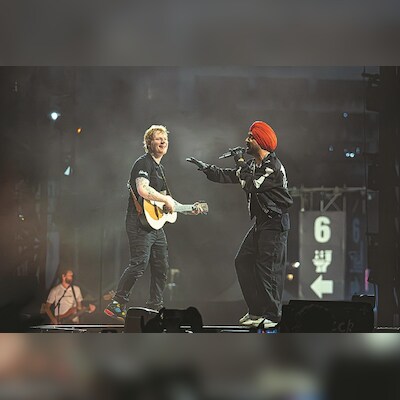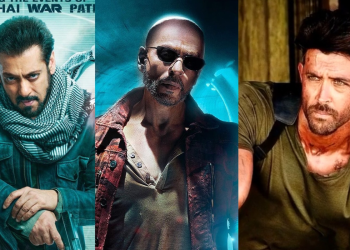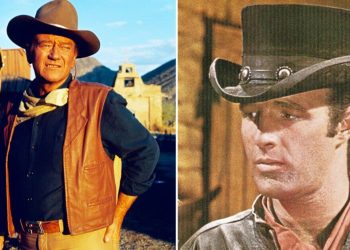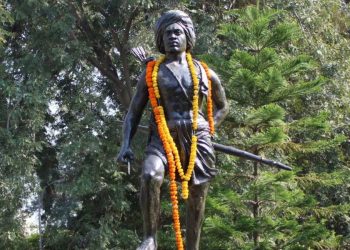Ed Sheeran and Diljit Dosanjh jamming to a Punjabi song seems unbelievable. But they did. On March 16 this year the ‘I am in love with the shape of you,’ singer called the Punjabi star-singer of Jatt and Juliet on the 360-degree, revolving, stadium-like, stage created at the Mahalaxmi Race Course in Mumbai.
The (reportedly) 50,000-plus audience that paid an average of Rs 9,000 per ticket, went berserk.
The Sheeran concert was produced and hosted by BigTree Entertainment’s BookMyShow. BigTree in turn is owned by the Reliance Industries controlled Network18. Sheeran’s +-=÷x Tour (pronounced The Mathematics Tour), Lollapalooza (an American music festival) and Back Street Street Boys are among the big events BookMyShow has produced and sold tickets to in the past 18 months.
“Ed Sheeran sold 3-4 times what he would have sold earlier,” says Owen Roncon, chief of business, live events, BookMyShow.
The sold-out tickets for shows of Sheeran, Vir Das, Varun Grover, Zakir Khan, Arijit Singh, Mamma Mia among dozens of others are a sign of the boom in live entertainment. The size and scale of the growth, however, is a bit difficult to ascertain.
Live events are estimated to be a third of the Rs 8,800 crore that all events including weddings and corporate earned in 2023, says FICCI-EY data. It grew by 20 per cent over 2022.
“The industry is three times the EY numbers,” says Deepak Choudhary, founder and managing director, EVA Live which hosts Bollywood Music Project, Social Nation, and the Windmill Festival, among others. Many within the business agree.
That would put events at just over Rs 26,000 crore and live entertainment events at roughly Rs 7,000 crore in revenues in 2023.
According to data from BookMyShow, in 2023 the number of people attending music concerts, stand-up, satire or lifestyle comedy, musicals and other live events was 13.5 million, over twice that in 2019. Tier-II cities such as Jaipur, Kochi and Surat are contributing to this rush. This is just data from one ticketing app.
Sanjoy Roy, managing director, Teamwork Arts, which curates the Jaipur Literature Festival (JLF) and Mahindra Kabira Festival, among others says: “Ten years ago, Piyush Mishra (an actor and a singer of somewhat eclectic songs) wouldn’t have got 500 people, today he gets 10,000.”
Analysts reckon the average ticket sales for live events are now at 10,000 and average ticket prices are Rs 3,000-4,000 as young people throng to watch their favourite artistes in the flesh.
“Post Covid, people have a sense of ‘we have one life,’ especially people under 30. They don’t want a house or a car, they want an experience,” says Roshan Abbas.
Among other things, Abbas also set up and ran an events firm Encompass before selling it to WPP. Roncon agrees.
“Social media plays a large role in everyone’s life. People can’t have a coffee without posting selfies and these things (live events) are fodder,” he adds.
Roncon reckons that roughly a third of the people at a music concert are truly engaged with the music or the musicians. Another one-third have been dragged there by their friends. The rest, he says, “are there to post on social media. Young people are going out to bars, restaurants or events, for different reasons. It is about fulfilment and finding who you are,” says Roncon.
It is then a weird mix of factors – the spread of the internet, social media, video, shorts, that whets the appetite of young people to see something live, along with a generational shift in priorities — that has given a fillip to live events. But can it last?
The fine print
Traditionally it has been corporate events that bring in the bread and butter for this business. That has degrown, says Abbas.
There is a huge, unknown, wedding market in which most of the big live event firms don’t get into it. Within live entertainment events, the challenges of multiple permissions, the lack of venues and the fear that the police could switch off your microphone in the middle of a concert remain. In a market where infrastructure and policy both are suspect, how does one build a business at scale and sustain it?
Roncon, Choudhary and Roy reckon that officialdom has eased somewhat though anywhere from 17-32 permissions are a given.
The big issue for them is having the corporate chops to produce, host and sell large-scale events like JLF, Lollapalooza or a Bollywood Music Festival.
BookMyShow has on the roll consultants such as UK-based Catherine Simpson or US-based Jake Berry among others. Each of them has 30 years of experience in operations, production and marketing of live events in entertainment.
“For Ed (Sheeran) we built a structure that involved structural engineering and a level of backend security, standardisation and processes,” says Roncon.
That is the first way in which this boom is different. It is coloured by a maturity, a will to tackle issues that seemed intractable earlier. The second feature of this growth is the de-risking of the revenue pie. Unlike earlier when everything depended on getting a sponsor, now ticket sales are a critical part of the revenue split.
For instance, roughly one-third of JLF’s top line comes from ticket sales, rental for food stalls and sponsors/advertisers. Roy says the JLF has actively worked to reduce the half a million people who would walk into the JLF to say 400,000 who pay, even if it is a small amount, for entry.
“(Eventually) we want to restrict footfalls (and ticket sales) at 300,000-350,000,” he says.
The nature of advertising in this round of growth is markedly different – the advertiser is not coming in to ‘support’ an event, he is coming in because he wants this audience.
“People are switching off traditional advertising; they are paying so that they don’t see ads (eg Netflix). That consumer comes and spends 3-4 hours on this (Sheeran or Lollapalooza),” points out Roncon.
That brings this to the third, possibly the most important change this boom has brought – an emphasis on ownership of IP, the processes and the experience around an event and using that to aid monetisation. When Choudhary who had been running an event firm with Laqshya Media set out to do something on his own, “We first bought all the IPs (The Edutainment Show, Social Nation et al) and put them in Eva Live,” he adds.
Teamwork Arts is focused on events that are its IP (JLF, Mahindra Kabira Festival), and a greater control over individual, repeat events to leverage them well. “Our repeats across festivals are high, so our marketing costs are lower. We do everything internally with a team of 100 people that expands to 4,000 when there is an event. Over the years we have streamlined processes and therefore the profitability has increased,” says Roy.
This round of growth then comes from a place where the challenges have been tackled head on. It just might hold.










Be First to Comment